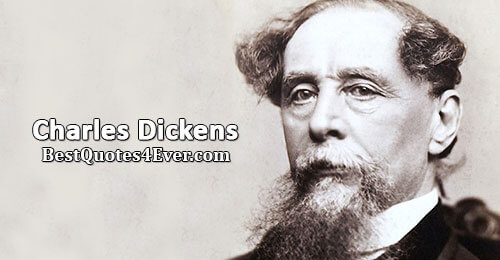Biography
Type: Writer
Born: 7 February 1812, Landport, Hampshire, Englan
Died: 9 June 1870 (aged 58), Higham, Kent, Eng
His own story is one of rags to riches. He was born in Portsmouth on 7 February 1812, to John and Elizabeth Dickens. The good fortune of being sent to school at the age of nine was short-lived because his father, inspiration for the character of Mr Micawber in 'David Copperfield', was imprisoned for bad debt. The entire family, apart from Charles, were sent to Marshalsea along with their patriarch. Charles was sent to work in Warren's blacking factory and endured appalling conditions as well as loneliness and despair. After three years he was returned to school, but the experience was never forgotten and became fictionalised in two of his better-known novels 'David Copperfield' and 'Great Expectations'.
Like many others, he began his literary career as a journalist. His own father became a reporter and Charles began with the journals 'The Mirror of Parliament' and 'The True Sun'. Then in 1833 he became parliamentary journalist for The Morning Chronicle. With new contacts in the press he was able to publish a series of sketches under the pseudonym 'Boz'. In April 1836, he married Catherine Hogarth, daughter of George Hogarth who edited 'Sketches by Boz'. Within the same month came the publication of the highly successful 'Pickwick Papers', and from that point on there was no looking back for Dickens.
As well as a huge list of novels he published autobiography, edited weekly periodicals including 'Household Words' and 'All Year Round', wrote travel books and administered charitable organisations. He was also a theatre enthusiast, wrote plays and performed before Queen Victoria in 1851. His energy was inexhaustible and he spent much time abroad - for example lecturing against slavery in the United States and touring Italy with companions Augustus Egg and Wilkie Collins, a contemporary writer who inspired Dickens' final unfinished novel 'The Mystery of Edwin Drood'.
He was estranged from his wife in 1858 after the birth of their ten children, but maintained relations with his mistress, the actress Ellen Ternan. He died of a stroke in 1870. He is buried at Westminster Abbey.
Dickens published more than a dozen major novels, a large number of short stories, including a number of Christmas-themed stories, a handful of plays, and several non-fiction books. Dickens's novels were initially serialised in weekly and monthly magazines, then reprinted in standard book formats.
- The Posthumous Papers of the Pickwick Club (Known as "The Pickwick Papers") (Monthly serial, April 1836 to November 1837)
- The Adventures of Oliver Twist (Monthly serial in Bentley's Miscellany, February 1837 to April 1839)
- The Life and Adventures of Nicholas Nickleby (Monthly serial, April 1838 to October 1839)
- The Old Curiosity Shop (Weekly serial in Master Humphrey's Clock, April 1840 to November 1841)
- Barnaby Rudge: A Tale of the Riots of Eighty (Weekly serial in Master Humphrey's Clock, February to November 1841)
- A Christmas Carol (1843)
- The Life and Adventures of Martin Chuzzlewit (Monthly serial, January 1843 to July 1844)
- Dombey and Son (Monthly serial, October 1846 to April 1848)
- David Copperfield (Monthly serial, May 1849 to November 1850)
- Bleak House (Monthly serial, March 1852 to September 1853)
- Hard Times: For These Times (Weekly serial in Household Words, 1 April 1854, to 12 August 1854)
- Little Dorrit (Monthly serial, December 1855 to June 1857)
- A Tale of Two Cities (Weekly serial in All the Year Round, 30 April 1859, to 26 November 1859)
- Great Expectations (Weekly serial in All the Year Round, 1 December 1860 to 3 August 1861)
- Our Mutual Friend (Monthly serial, May 1864 to November 1865)








